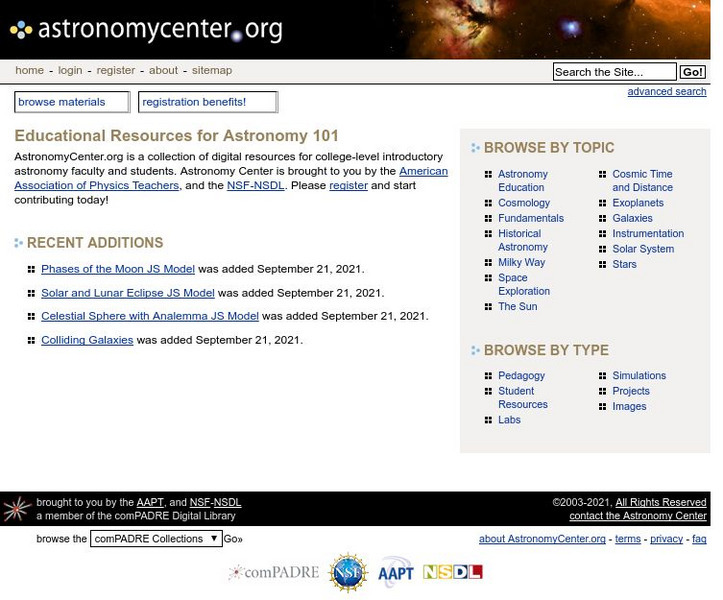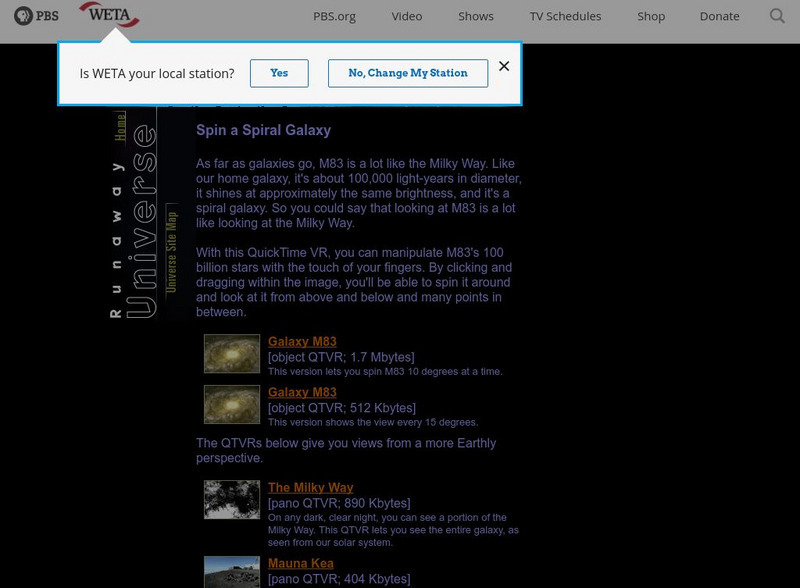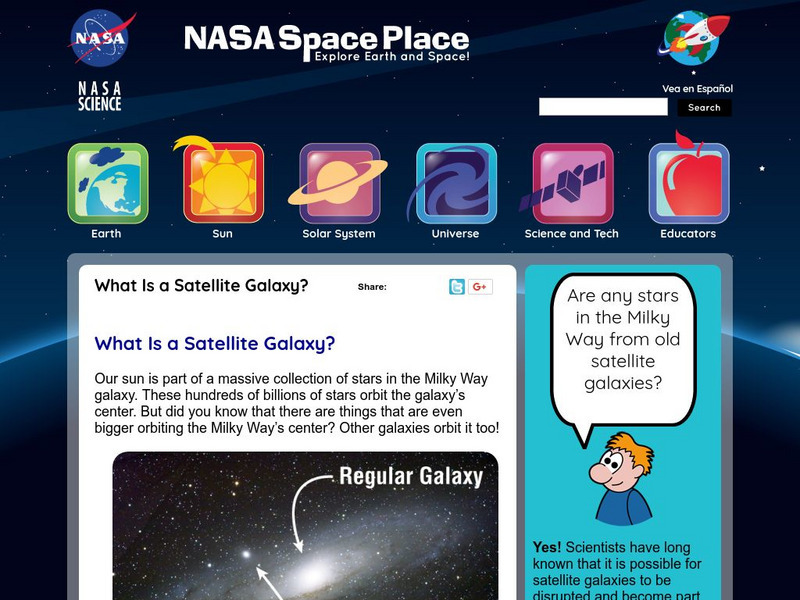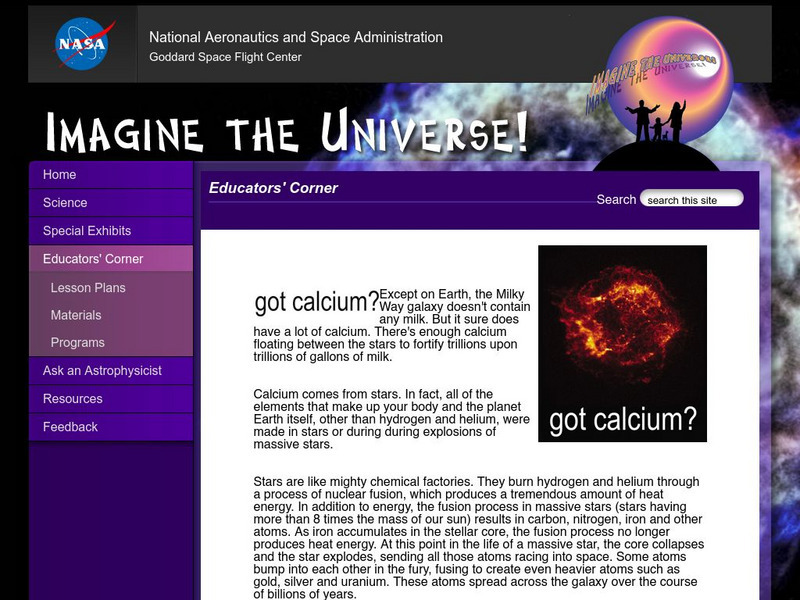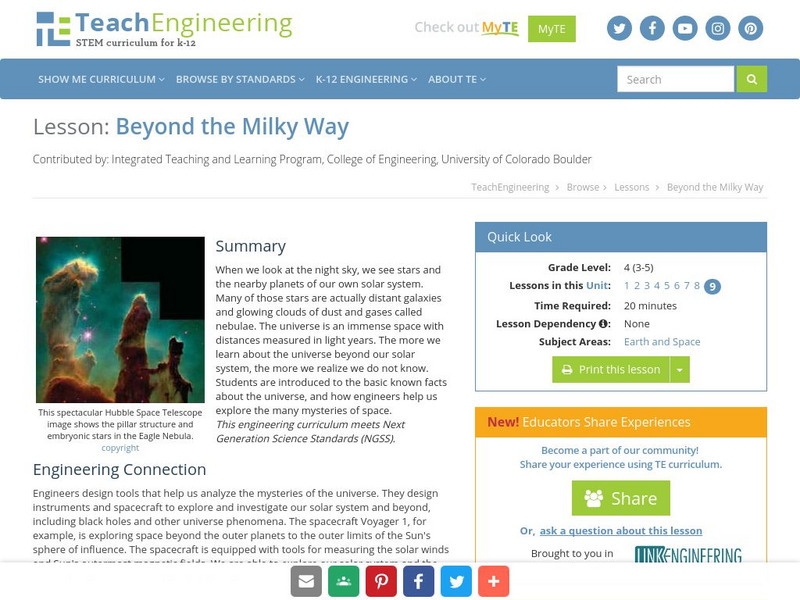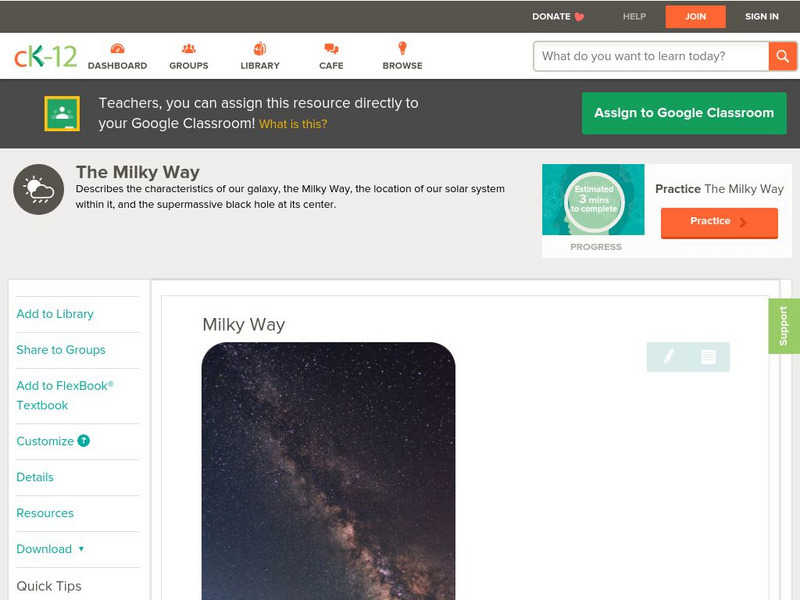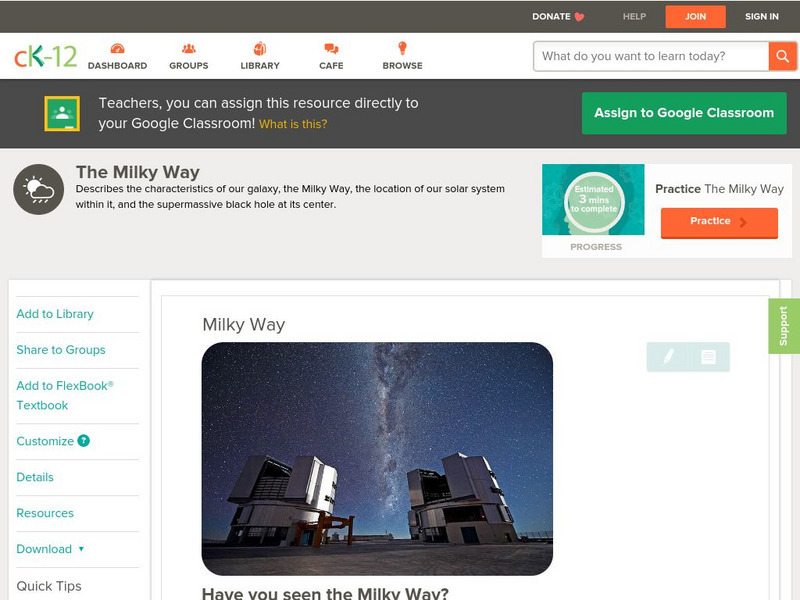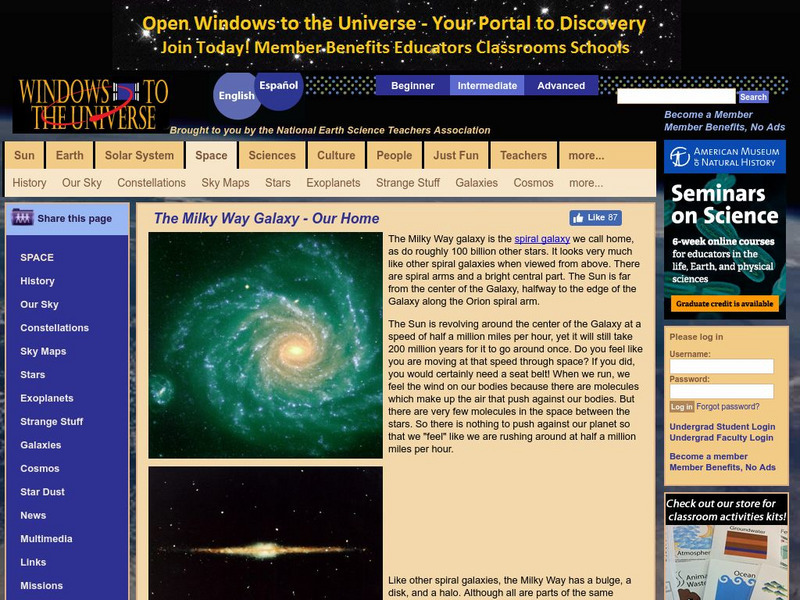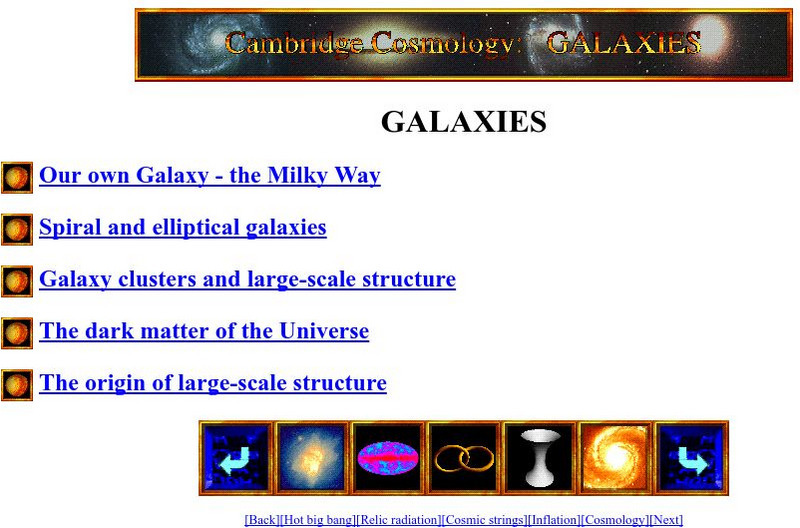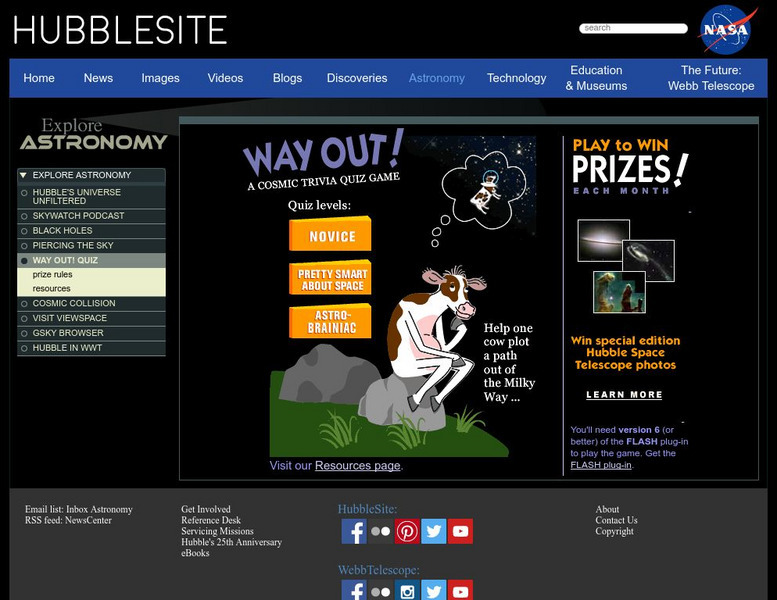Wikimedia
Wikipedia: The Black Hole
This site examines the black hole as an object in astrophysics. Delve into this comprehensive resource that covers this concept from its history, to qualitative physics, the reality of black holes, mathematical physics and more.
Polk Brothers Foundation Center for Urban Education at DePaul University
De Paul University: Center for Urban Education: Learning About the Solar System [Pdf]
"Learning about the Solar System" is a one page, nonfiction, reading passage about scientists and learning about our solar system and how it works. It is followed by constructed-response questions which require students to provide...
Polk Brothers Foundation Center for Urban Education at DePaul University
De Paul University: Center for Urban Education: Learning About the Solar System [Pdf]
"Learning about the Solar System" is a one page, nonfiction, reading passage about the Milky Way gallaxy and what it takes to be a scientist. It is followed by constructed-response questions which require students to provide evidence...
Polk Brothers Foundation Center for Urban Education at DePaul University
De Paul University: Center for Urban Education: Learning About the Solar System [Pdf]
"Learning about the Solar System" is a one page, nonfiction, reading passage about the Milky Way gallaxy and how scientists learn about it over time. It is followed by questions which require students to provide evidence from the story;...
American Museum of Natural History
American Museum of Natural History: O Logy: Stuff to Do: Stargazing
Get started on the road to becoming an expert stargazer by following these recommendations for identifying stars, planets, and constellations. Includes an example of a journal that can be used as a record of your investigations.
American Association of Physics Teachers
Com Padre Digital Library: The Astronomy Center
A searchable collection of "curriculum materials, images, classroom demonstration, learning resources, evaluation instrumnets, and articles about approaches to astronomy education". Users can contribute materials by creating a free account.
PBS
Pbs Nova Online: Spin a Spiral Galaxy
PBS site provides various views of spiral galaxies. (Quick Time required) With this technology, you can manipulate the image to spin it around and look at it from various angles.
Other
University of Cambridge: Astro Adventure
Imagine a time when you can travel through space, planet to planet, cheaply and in comfort, when you can take a trip to the stars as your next holiday. Well, imagine no more. Learn more about the solar system as you take this trip of a...
Scholastic
Scholastic: Study Jams! Science: Our Solar System: The Universe
A video and a short multiple-choice quiz on the Universe and what it is made up of.
NASA
Nasa: Space Place: What Is a Satellite Galaxy?
Find out about the behavior and characteristics of the many satellite galaxies that orbit other galaxies.
NASA
Nasa: Imagine the Universe: Got Calcium?
This site has an article on, "The Milky Way galaxy doesn't contain any milk, but it sure does have a lot of calcium. There's enough calcium floating between the stars to fortify trillions about trillions of stars."
TeachEngineering
Teach Engineering: Beyond the Milky Way
When we look at the night sky, we see stars and the nearby planets of our own solar system. Many of those stars are actually distant galaxies and glowing clouds of dust and gases called nebulae. The universe is an immense space with...
CK-12 Foundation
Ck 12: Earth Science: Milky Way
[Free Registration/Login may be required to access all resource tools.] Identify the shape and size of the Milky Way and where our solar system is located in the Milky Way.
CK-12 Foundation
Ck 12: Earth Science: Milky Way
[Free Registration/Login may be required to access all resource tools.] Identify the shape and size of the Milky Way and where our solar system is located in the Milky Way.
National Earth Science Teachers Association
Windows to the Universe the Milky Way Galaxy
Learn what Milky Way galaxy is made of and what it looks like, as well as how it relates to other known galaxies. Read "Questions and answers about the Milky Way" for further information.
NASA
Nasa Star Child: The Sun
Get to know our nearest star with this introduction to the sun. Listen to the information in an audio file. Vocabulary words are linked to a glossary of terms. Features include links to other interesting facts and a printable version of...
Other
University of Cambridge Cosmology: Galaxies
This site from the University of Cambridge allows you to view information on spiral, elliptical, and Milky Way galaxies, as well as galaxy clusters. Provides basic facts about each one.
NASA
Nasa Star Child: Star Child
StarChild from NASA defines and describes the Solar System in a simple and easy-to-understand manner. The website is broken down into two versions for the student, grade school and junior high.
Space Telescope Science Institute
Amazing Space: Galaxies Galore: Games and More
This is a fun and useful site to learn about galaxies. Content includes a building model to create your own Milky Way, games for learning the various types of galaxies, and more fun games.
Space Telescope Science Institute
Hubble Site: Way Out!
Can you help a cow plot a path out of the Milky Way? This hilarious space game is for all ages and is offered by HubbleSite. Users may pick their level of expertise and can choose from novice, pretty smart about space, or an astrobrainiac.
NASA
Nasa: Milky Way
This Milky Way image is part of a series of photographs taken from the Spitzer Space Telescope. The picture is accompanied by a textual overview of the Milky Way with specific attention given to the details of the picture. Several higher...
Khan Academy
Khan Academy: Answers to Exploration Questions: Galaxies
Answers to the exploration questions about galaxies can be found on this site.
University of Texas at Austin
The University of Texas Mc Donald Observatory: The Milky Way
Students will work in groups to make up a story and picture that explains how someone living thousands of years ago in their location might have explained the Milky Way.
Mr. Nussbaum
Mr. Nussbaum: Galaxies Reading Comprehension
This learning module includes a nonfiction reading passage about galaxies including the Milky Way followed by a multiple choice self-assessment which gives students immediate feedback.



![De Paul University: Center for Urban Education: Learning About the Solar System [Pdf] Unit Plan De Paul University: Center for Urban Education: Learning About the Solar System [Pdf] Unit Plan](https://d15y2dacu3jp90.cloudfront.net/images/attachment_defaults/resource/large/FPO-knovation.png)
